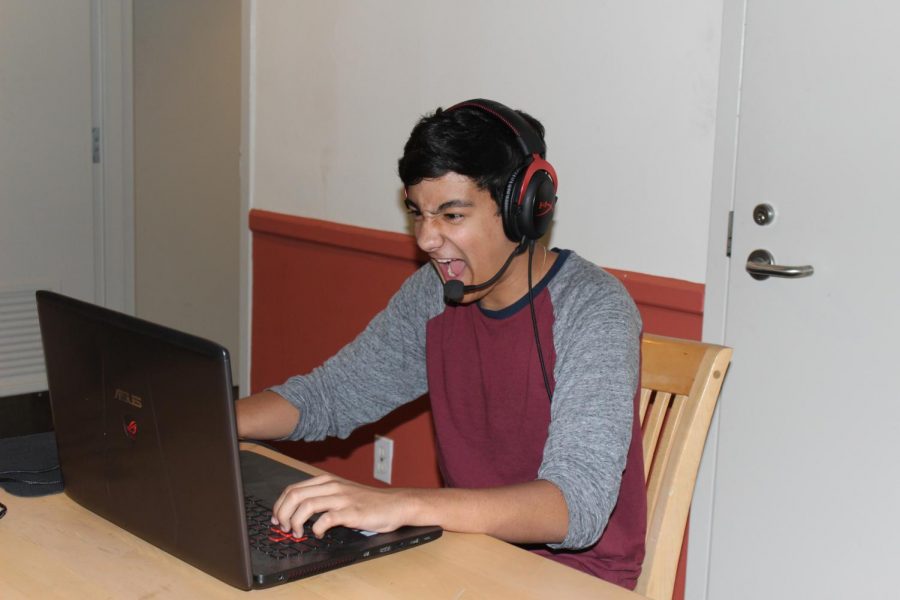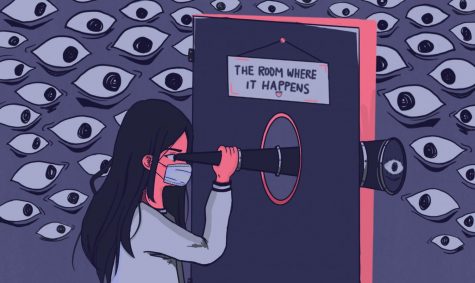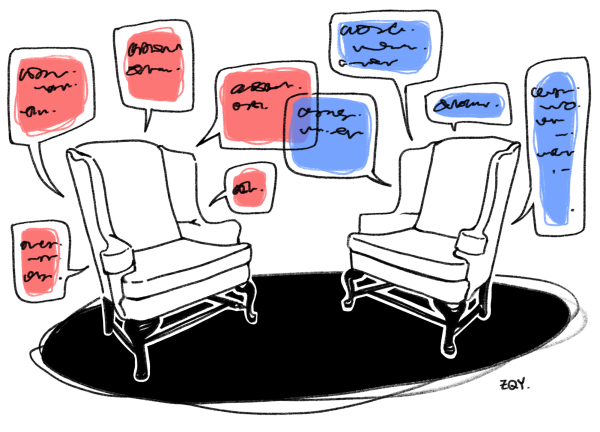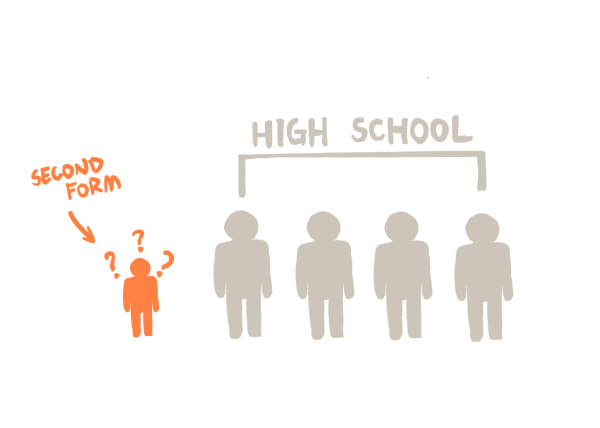The Scourge of Fortnite in Lower School
Jaden Cheeks ’19 plays Fortnite.
The gaming industry, rapidly increasing in size, surpassed 100 billion dollars in revenue in 2017. The impact of this growth has started to seriously affect Groton students.
Usually, gaming at Groton has not been too problematic, but the game Fortnite has become an epidemic in the Lower School boys’ dorms. Students have been squandering more and more of their precious time on the video game, instead of forming memories with friends. Fortnite has been detrimental in other ways, such as causing students to skip meals – on some Sundays, many students never leave the dorms at all – and lose sleep.
Playing video games in moderation is not necessarily harmful, but playing games for an excessive amount of time can lead to addiction. In January 2018, the World Health Organization officially recognized gaming disorders as part of their International Classification of Diseases.
How have so many people gotten hooked by one video game? Video games keep players engaged with five psychological tricks, according to an article in Techopedia, three of which Fortnite strongly deploys: fascination, reward schedules, and progression.
The game fascinates players with enticing graphics, which make participants feel like they are actually in the game, and thus increases enjoyment. The competitiveness and difficulty of the game trigger an adrenaline response in its players, according to an 2016 article in the Washington Post, whether they are winning or in a tense moment. Furthermore, video games use reward schedules, such as distributing virtual currency to purchase in-game items, to exploit players into playing the game often. Fortnite, in particular, uses a daily rewards system. Lastly, games use progression to keep players hooked. The more you play Fortnite, the better you get, and the more you want to play. You learn from mistakes and get better at crucial skills within the game, such as aiming a weapon. While all games use these tactics, evidently Fortnite is currently the best at addicting students. Students play together, a habit that increases the addictive nature of the game, according to the same Washington Post article.
A survey of the Lower School with 74 respondents conducted by The Circle Voice indicated that 95 percent of Fortnite players are boys. 25 percent of the boys who responded said that Fortnite negatively impacted their academic performance, and 60 percent believed that Fortnite was causing problems in their form, such as lack of communication. One third form boy commented, “Fortnite is addictive. I sort of regret playing Fortnite so much and I’m trying to stop, but honestly, it’s very hard. I don’t want anyone else being addicted to Fortnite, I didn’t know it before but it definitely lowered my grade.” The girls’ responses were equally grim: a full 82 percent of the 39 girls responding claimed that Fortnite was negatively affecting their form, and girls commented frequently that the game was increasing the gender divide at the school, since boy were often too preoccupied in the game.
Recently, Lower School boys’ dorm head Bill Riley became aware “that a small number of students have been spending countless hours on some nights playing Fornite.” Accordingly, Mr. Riley banned Fortnite in his dorm, forcing its residents to delete the game from their electronic devices. One student in Riley’s dorm, who wishes to remain anonymous, thanked Mr. Riley for helping him delete the game. The student spent the first weekend of spring term out on the Circle and said he was grateful for the help he received resolving his gaming addiction.
Mr. Riley’s solution has been extremely effective for Riley’s dorm, and other Lower School dorm heads should take his idea into consideration. The lower schooler mentioned earlier said, “I believe that the ban Mr. Riley implemented will increase the amount of social interactions within Riley’s dorm.” Playing Fortnite can handicap students academically and worsen their general behavior in school, due to fatigue from sleepless nights of gaming, and banning the game can help fight this.
Overall, Fortnite is damaging Lower School dorms. The Lower School is recovering from the Fortnite outbreak, but only gradually. Video games themselves are not inherently bad, but they must only be played in moderation. If this addiction persists, stronger action must be taken in on campus.













Joe • Aug 5, 2018 at 8:25 PM
Fortnite is ruining three of my kids lives. Sleep all day and play all nite. It so sad for them to be addicted. Just like drugs.
Time is coming to a abrupt end. When school starts, my 8 lb sledge hammer that i split wood will be put into action on the xbox.